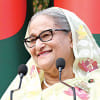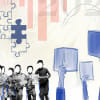What may an education manifesto for 2024 look like?

Eyeing the upcoming 12th parliamentary election in January 2024, the Awami League, the ruling party since 2009, has formed an election manifesto preparation sub-committee. Abdur Razzaque, member of the party presidium and agriculture minister, has been assigned by party chief Sheikh Hasina to head the sub-committee. A political manifesto ahead of a national election is a party's pledge about their goals and priorities regarding major sectors of national development, aimed at persuading citizens to vote them into power. The party, in turn, has the obligation to fulfil the pledge it makes to the people.
What may be the education component of the 2024 manifesto? In 2018, ahead of the 11th parliamentary election, the Awami League manifesto titled "Bangladesh marches towards prosperity" stated its promises on education. Listing first the "immense success" achieved in the previous five years, the goals and plans for the next five years were mentioned.
The success list included the adoption of the National Education Policy 2010, nationalisation of 26,000 community-built primary schools, millions of free textbooks distributed to students, appointment of new teachers, and construction of various educational institutions. Declaring the Dawra-e-Taklim of the Qawmi madrasas as equivalent to a general master's degree was also mentioned as a success.
The objectives and plans for the next five years (2019-23) included giving highest allocations for education and proper use of the fund, a "large project" for training language and mathematics teachers of primary and secondary schools, making Bangladesh "totally free from the curse of illiteracy," bringing dropout rates in primary school down to zero and to five percent up to Class 8, making school meal universal in rural and low-income urban areas, and continuation of the stipends for students. Also, it was planned that the salary structure of primary school teachers would be "dealt [with] judiciously."
It can be seen readily that the achievements listed for past years were essentially to keep the existing system running and expanding it somewhat. This was a necessary objective, but this did not address the major quality and disparity problems of our education system.
With the foundations laid for Digital Bangladesh, the new buzzword now is "Smart Bangladesh," which may very well figure prominently in a new manifesto. Smart Bangladesh can be real only with smart people, especially a smart new generation, raised through an effective education system.
In the plan for the following five years, a recognition of the quality, learning outcome and inequality issues could be detected. However, it is well-known that little progress has been made in the first five objectives listed. The allocations for education did not increase as a proportion of GDP or the national budget, and better utilisation of funds remained questionable. A "large project" for language and mathematics teachers did not happen, and no improvement could be seen in students acquiring foundational skills. We are still far from getting rid of illiteracy or bringing dropout rates to zero or near-zero at primary and secondary levels, though slow progress has been reported. School feeding ceased during the Covid closure, and the project funding ended. It is yet to be taken up as a regular budget activity of the government.
A review of activities under the 2018 manifesto has been posted by Mohammad Tofazzel Hossain Miah, principal secretary at the Prime Minister's Office, on the PMO website. This step to inform the public is commendable. Incidentally, in his official CV, among other academic accomplishments, Miah has mentioned an MSc in early childhood development (ECD) from Brac University.
The information provided on the website is instructive. In the section for education, the main objective has been noted as the continuation of comprehensive efforts to improve the quality of education. The list of actions taken to this end, however, mentions only a major expansion of the system from 2006 to 2020 – growth in the numbers of state and non-state educational institutions and teachers in primary, secondary, technical-vocational and tertiary education. The review has nothing to say about the five major quality and disparity objectives of the 2018 education manifesto. Neither the manifesto nor its review mentions the SDG4 agenda of achieving equitable, inclusive and quality pre-primary, primary and secondary education for all children by 2030, and a major expansion of opportunity for lifelong learning. Bangladesh is committed to this agenda not just as a global goal, but as an essential condition for realising its own goal of reaching the higher-middle-income rank by 2030 and the developed country status by 2041. A plan does not exist for universal secondary education. A serious and systematic effort has not been made to implement the key objectives of the much invoked 2010 National Education Policy.
Will the new manifesto under preparation again be a triumphal narrative of great success, citing the expansion of the system, and the promise to continue the good work that has been going on? Such an exercise cannot be satisfactory and cannot serve any useful purpose in addressing the critical challenges in education that Bangladesh faces today.
The Bangladesh story in education and development, not unlike that of many other developing countries, is of an expansion of the system at the cost of major deficits in learning outcomes, poor relevance of what is taught, and major disparities and exclusions in opportunities. The causes are manifold, which in broad terms may be attributed to a lack of clear vision of human development, inadequate resources, and a lack of insightful and committed leadership to steer the course. These are symptoms of the absence of a consistent and coherent vision that is owned at the highest level of political decision-making with a good understanding of the implications for policy and priorities. One remedial step may be to appoint a statutory permanent education commission with people chosen for their competence and integrity to help chart the course for the future, as recommended in the 2010 policy.
With the foundations laid for Digital Bangladesh, the new buzzword now is "Smart Bangladesh," which may very well figure prominently in a new manifesto. Smart Bangladesh can be real only with smart people, especially a smart new generation, raised through an effective education system.
An education discourse among concerned academics, researchers, teachers, students, and civil society has been going on. An account of the problems, priorities and approaches to solutions can be gleaned from the recent Education Watch reports and other publications. Education Watch reports for 2020, 2021 and 2022 have examined the pandemic impact on education, how the pre-existing problems have been exacerbated, and how a recovery and renewal may be begun. A Brac University study titled "Non-State Actors in Education: Exploring State/Non-state Collaboration in Bangladesh," prepared for the Global Education Monitoring South Asia report, discusses how all education actors, state and non-state, might contribute to achieving the goal of quality, equity and inclusion in education. Another pertinent report by the Citizens' Platform for SDG2030 is a policy brief with the self-explanatory title "Triggers to Ensuring Quality in Primary Education."
The education manifesto needs to recognise both the challenges and the opportunities. Those who assume power, chosen by citizens freely and fairly in January 2014, will do well to pay attention to the ongoing education discourse and involve the stakeholders in laying the path for the future.
Dr Manzoor Ahmed is professor emeritus at Brac University, chair of Bangladesh ECD Network (BEN), and adviser to the Campaign for Popular Education (CAMPE).
Views expressed in this article are the author's own.
Follow The Daily Star Opinion on Facebook for the latest opinions, commentaries and analyses by experts and professionals. To contribute your article or letter to The Daily Star Opinion, see our guidelines for submission.

 For all latest news, follow The Daily Star's Google News channel.
For all latest news, follow The Daily Star's Google News channel. 










Comments